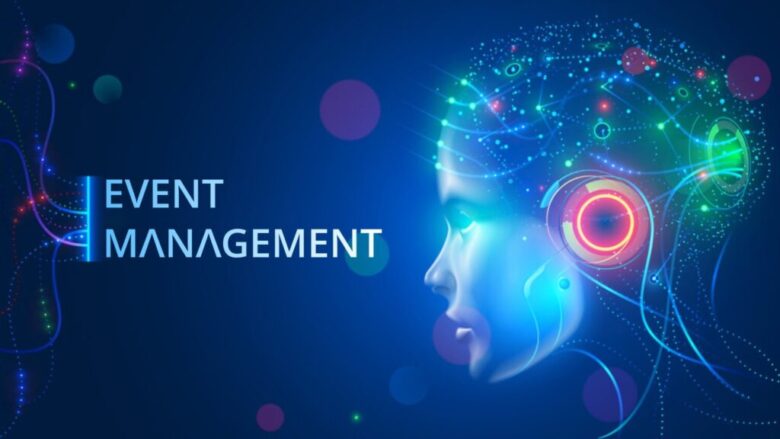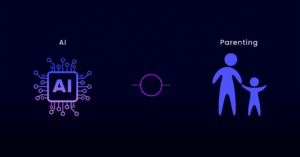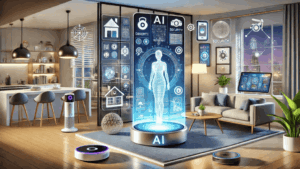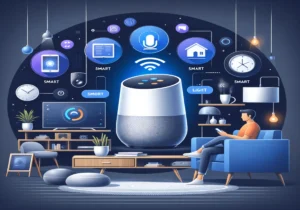Event planning has become a high-stakes, high-precision industry where even a minor setback can ruin an entire event. It’s no longer just about booking a space and sending out invitations. In the digital age, expectations are high, and people want events to run smoothly, be unique, and have a personal touch. Artificial intelligence can help. AI is subtly changing the events industry, helping organizers streamline logistics, personalize the attendee experience, and avoid last-minute chaos.
Whether it’s a small wedding or a large corporate meeting, AI tools can help planners run events more smoothly, smartly, and excitingly. The goal is to enhance their skills with real-world precision, not replace the imaginative minds that create magic. Let’s take a look at how event planners can use this technology to create flawless, standout events.
Smart Logistics Management and Planning:
Artificial intelligence (AI) plays a major role in the early stages of event planning by automating repetitive processes, predicting logistics needs, and optimizing timelines. Today, planners use AI-driven systems to manage everything from floor plan design to vendor negotiations. Depending on the type of event and audience, these tools can analyze historical data and current metrics to suggest ideal times, locations, and designs. Because AI can predict potential problems like traffic jams, severe weather, or resource shortages, planners can create a backup plan in advance.
Planners can now make data-driven decisions, leading to more efficient operations, instead of relying on manual spreadsheets or intuition. While routine tasks are handled by automation, professionals can focus on the creative aspects that make a campaign stand out. This combination of efficiency and intelligence not only delivers a best-in-class experience but also helps reduce errors, stay on budget, and meet deadlines.
Personalized Attendee Experiences Powered by AI:
Personalization is one of the most powerful ways AI is revolutionizing event planning. AI ensures that every guest has a unique event experience because no two guests are the same. AI can customize everything from event invitations to live events by examining attendee data, such as preferences, behavior patterns, and social media interactions. For example, AI systems can recommend dishes based on dietary restrictions or entertainment, or activities that match each guest’s interests.
Chatbots can make guests feel seen, understood, and valued throughout the event, while facial recognition can speed up the check-in process. This level of personalization increases attendee engagement and creates a memorable experience. In today’s experience-driven society, personalization is more than a fad; it’s a requirement, and AI is a key component in making it efficient and scalable.
Enhanced Virtual and Hybrid Events:
The general public is increasingly accepting virtual and hybrid events, and AI is leveraging these events to enhance their engagement and entertainment value. Today, AI technology can provide instant translation, real-time captioning, and smart matching capabilities for social gatherings, lowering the barrier to entry and making events more accessible. During live broadcasts, algorithms can evaluate engagement data, such as delivery points or popular segments, and provide instant feedback to organizers.
This feature helps make adjustments as events unfold. A recommendation engine that identifies breakout rooms or speakers based on user interests also uses AI. These quick adjustments and additions help virtual events feel dynamic and personal rather than static and impersonal. AI can help balance the online and offline elements of hybrid events to ensure a seamless experience for all attendees. Regardless of the medium you use, it’s about creating meaningful connections, not just delivering content.
Effective Marketing and Audience:
AI makes it easier to attract the right people to your events, which is a crucial first step. Event planners are now using AI to create marketing campaigns that are relevant to specific audiences. By analyzing data from past campaigns, email interactions, social media, and online traffic, AI can predict who is likely to attend and what message will resonate with them.
It helps you optimize your advertising budget by determining the most effective channels and times to reach your target audience. AI-powered chatbots can answer questions instantly, increasing user engagement and conversion rates. This feature allows planners to increase attendance and return on investment without hurting their budget. It’s like a marketing guru who always follows through and knows what the audience wants to hear.
Analytics in Real Time and After-Event Perspectives:
AI works overtime; it doesn’t stop working when the event begins. AI technologies collect useful real-time data during an event on a variety of topics, including traffic flow, feedback scores, and participant engagement. Planners may make fast decisions, such as modifying the agenda, rearranging the rooms, or sending out reminders, thanks to this instant input. AI resumes its job after the event by assembling data into comprehensive reports that highlight what succeeded and what failed.
By offering evidence-based recommendations for the future, these insights assist planners in making their events better every time. AI provides quantitative data and actionable insights, so there’s no need to rely on intuition or anecdotal feedback. Artificial intelligence (AI) transforms raw data into a road map for success, whether it’s determining which speakers were popular or determining why a certain session had poor attendance.
Conclusion:
AI is swiftly emerging as a crucial ally for event coordinators who wish to produce remarkable events free from the anxiety and unpredictability that can accompany intricate logistics. The goal is to eliminate inefficiencies and free up creative energy, not to make planning robotic or cold. AI is revolutionizing the way events are planned and carried out, from intelligent logistics and customized visitor experiences to hybrid technologies and potent analytics.
By using this technology, event planners are becoming more prepared, more nimble, and able to consistently produce truly remarkable experiences. The future of event planning appears not only perfect but spectacular as AI develops further. AI makes sure that everything is perfect, facilitating flawless memory-making, whether it’s a large conference or a little get-together.
FAQs:
Is it possible for AI to simplify event planning?
Indeed, AI simplifies difficult jobs like budgeting, scheduling, and guest relations, freeing up planners to concentrate more on innovation and interaction.
2. Can small event planning businesses afford AI?
Numerous AI solutions are scalable and provide free or reasonably priced plans that small organizations can use efficiently without incurring significant upfront expenses.
3. How is the visitor experience personalized by AI?
AI uses visitor data to personalize timetables, entertainment choices, invitations, and other aspects of the event, giving each guest a unique experience.
4. Do AI chatbots perform reliably at live events?
Of course. AI chatbots are able to respond to several inquiries in real time, providing prompt instructions, updates, or session information.
5. How will AI affect event planning in the future?
AI will become increasingly predictive, intuitive, and integrated as technology develops, assisting planners in anticipating demands and consistently providing flawless experiences.




